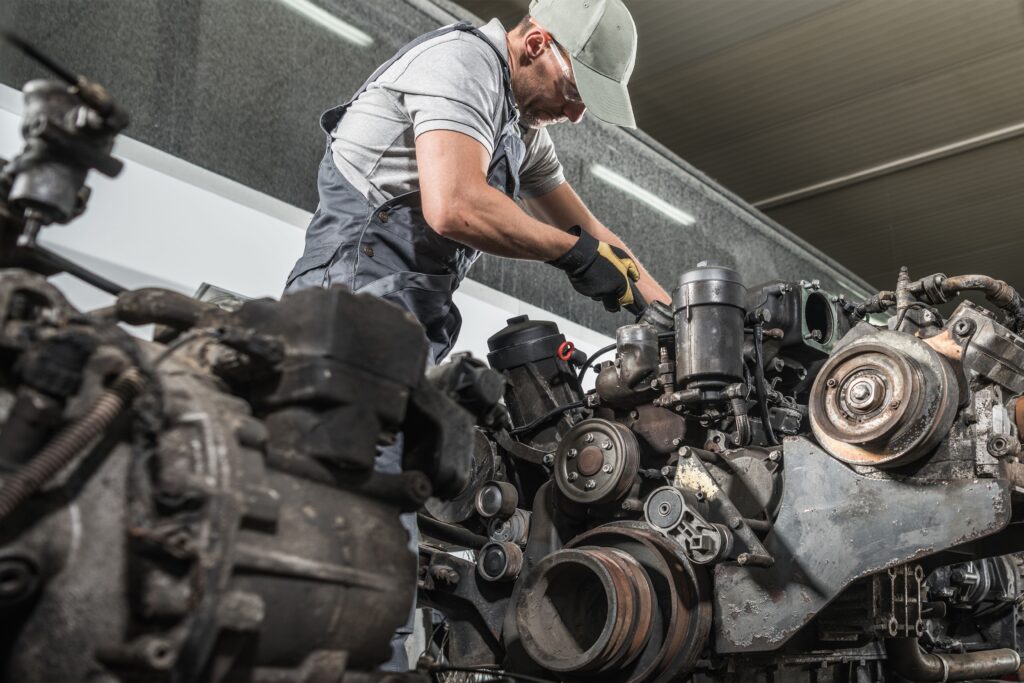Embark on the journey toward becoming a safer trucker by mastering essential skills, adhering to strict safety protocols, and proactively addressing challenges on the road. Equip yourself with protective driving methods, stay updated on regulations, and prioritize vehicle maintenance checks to prevent breakdowns and accidents. Utilize defensive driving techniques, manage fatigue effectively, and engage in continuous education to enhance your performance. By focusing on safety and well-being, you pave the way for professional success in the trucking industry. Upgrade your skills and stay ahead on the path to success.
Importance of Safety in Trucking
Ensuring safety in trucking is crucial for both yourself and other road users. Driver training programs equip you with the necessary skills to navigate roads safely, promoting a culture of responsibility and awareness. Compliance with regulations and regular vehicle maintenance checks are essential components in maintaining a secure environment while on the road.
Driver Training Programs
In trucking, prioritizing safety through thorough driver training programs is a foundational step towards ensuring a culture of safe driving practices on the road. Programs such as the Roehl Way focus on teaching protective driving methods and instilling safe behaviors. By implementing performance-based pay plans, these training programs incentivize drivers to uphold safe driving practices, fostering a safety-conscious environment. The success of these initiatives is evident in the numerous Roehl teammates who have been recognized for achieving million miles of safe driving. New drivers benefit from the support and guidance offered in these training programs, setting them on the path to maintaining safe driving habits for long-term success in the industry.
Compliance With Regulations
Strictly adhering to federal regulations is a cornerstone of safety and success in the trucking industry. Compliance with regulations is vital for ensuring safety on the roads, preventing accidents, and maintaining a positive reputation. By following these regulations, you contribute to creating order and promoting a peaceful road environment for all motorists. Avoiding accidents and fines becomes more achievable when you strictly adhere to federal regulations. Prioritizing compliance with these regulations is not only necessary for your safety but also essential for your professional success and career advancement in the trucking industry.
Importance of Compliance with Regulations:
- Ensures safety on the roads
- Prevents accidents and fines
- Maintains a positive reputation
- Promotes a peaceful road environment
- Essential for professional success
Vehicle Maintenance Checks
Regular vehicle maintenance checks are important for ensuring the safety and efficiency of trucking operations. By conducting regular inspections and addressing any issues promptly, you can prevent breakdowns and accidents on the road. Proper maintenance not only increases the lifespan of your truck but also reduces the risk of unexpected mechanical failures, contributing to overall road safety. Adherence to maintenance schedules is essential in maintaining the ideal condition of your vehicle and ensuring smooth operations. Pay close attention to key components such as brakes, tires, and lights, as they play a significant role in safe driving. Remember, investing time in vehicle maintenance not only keeps you safe but also helps in promoting a culture of safety within the trucking industry.
Vehicle Maintenance Best Practices

Routine maintenance inspections are vital for maintaining your vehicle in top condition and ensuring safety on the road. Examining key components like tire pressure, brakes, lights, and fluids on a regular basis can help prevent breakdowns and potential accidents.
Adhering to the manufacturer’s maintenance schedule is necessary to extend your truck’s lifespan and optimize fuel efficiency, ultimately saving you time and money in the long term.
Routine Checks Importance
Implementing a comprehensive vehicle maintenance routine is crucial for guaranteeing road safety and preventing unexpected breakdowns. To keep your truck in top condition, consider the following:
- Regular routine checks help prevent breakdowns and ensure safety on the road.
- Proper maintenance reduces the risk of accidents due to mechanical failures.
- Following a maintenance schedule prolongs the life of your truck and its components.
Timely Repairs Essential
Guaranteeing timely repairs for your vehicle is crucial to maintain safety and efficiency on the road. Regular maintenance and prompt repairs play an important role in preventing breakdowns and costly issues while driving. By addressing small problems promptly, you can avoid larger complications that may jeopardize your safety. Following a strict maintenance schedule not only extends your vehicle’s lifespan but also enhances its overall performance. Investing in proper vehicle maintenance is an investment in your safety and the well-being of others on the road. Remember, taking care of your truck through timely repairs is a proactive approach that ensures you can continue your journey safely and confidently. Stay ahead of potential problems by addressing repairs promptly, keeping you and those around you safe.
Defensive Driving Techniques

When driving defensively, always stay alert to anticipate potential dangers and react promptly. Maintaining a safe distance between your truck and other vehicles allows for enough time to respond to sudden changes in traffic. Utilizing proper signaling and communication techniques can prevent misunderstandings and promote a safer driving environment for everyone on the road.
Stay Alert Always
To enhance your defensive driving skills and guarantee road safety, maintaining constant alertness is essential. Here are three key points to help you stay alert always:
- Regularly scan your surroundings, including checking mirrors and blind spots.
- Stay focused on the road ahead, anticipating potential hazards and reacting promptly.
- Avoid distractions like using a phone, eating, or engaging in activities that take your attention away from driving.
Maintain Safe Distance
Maintaining a safe distance between your truck and other vehicles is a critical defensive driving technique that greatly reduces the risk of rear-end collisions. Defensive driving principles suggest keeping at least one truck length of space for every 10 miles per hour you are traveling. By adhering to safe following distances, you allow yourself enough reaction time in case of sudden stops or emergencies on the road. Remember, tailgating notably increases the likelihood of accidents, making it vital to maintain a safe distance while driving. Understanding the stopping distance required for trucks is essential for ensuring you can react appropriately to different situations. By consistently practicing safe distance techniques, you not only protect yourself but also contribute to a safer driving environment for everyone on the road.
Managing Fatigue and Stress

You should prioritize maintaining a consistent sleep schedule to make sure you are well-rested and alert while driving. Implementing stress management techniques, such as deep breathing or listening to calming music, can help you stay focused and reduce the impact of stress on your driving. Remember to take regular breaks to rest and recharge, as healthy coping mechanisms are essential for managing fatigue and stress effectively.
Sleep Schedules Importance
Consistent adherence to a structured sleep routine is vital for truck drivers in managing fatigue and stress levels effectively. Here are three key reasons why sleep schedules are essential for your well-being on the road:
- Enhanced Alertness: Adequate rest helps improve your alertness, ensuring you can make quick decisions while driving.
- Improved Focus: Irregular sleep patterns can lead to drowsiness, affecting your focus and attention on the road.
- Reduced Accident Risk: Lack of proper sleep impairs reaction times, increasing the likelihood of accidents.
Stress Management Techniques
How can truck drivers effectively manage fatigue and stress to guarantee peak performance on the road? Managing fatigue is critical for your safety and the safety of others. Make sure you take adequate rest breaks and stick to a proper sleep schedule to combat fatigue and stay alert. Incorporate stress management techniques like deep breathing, stretching exercises, and listening to calming music during your long hauls to reduce stress levels. Engaging in physical activities during breaks can help boost your energy levels and counteract the physical effects of stress and fatigue. By recognizing early signs of stress and fatigue, you can take proactive measures to safeguard your well-being and ensure you are in top condition for your journeys.
Healthy Coping Mechanisms
Implementing healthy coping mechanisms is essential for truck drivers to effectively manage fatigue and stress while ensuring peak performance on the road. In order to maintain your well-being and safety, consider the following strategies:
- Engage in regular physical exercise to reduce stress levels and improve overall health.
- Practice mindfulness techniques like deep breathing or meditation to stay focused and calm during challenging situations.
- Establish a consistent sleep schedule and prioritize getting enough rest to prevent fatigue-related incidents.
Regular Breaks Necessity
Regular breaks are essential for managing fatigue and stress effectively while driving long hours. By taking breaks, you can reduce the risk of fatigue-related accidents, enhance your alertness, and maintain focus on the road. Research indicates that prioritizing rest intervals during your journey leads to safer driving practices and accident prevention. These breaks provide you with the opportunity to stretch, hydrate, and rejuvenate, promoting your overall well-being. Remember, incorporating regular breaks into your driving routine not only benefits your health but also contributes to a safer driving environment for yourself and others on the road.
| Benefits of Regular Breaks while Driving |
|---|
| Improved alertness and focus |
| Reduced risk of fatigue-related accidents |
| Promotion of overall well-being |
Continuous Training and Education

To become a safer trucker, you must prioritize ongoing safety training and regularly updating your knowledge base. Continuous education guarantees that you stay informed about industry regulations and best practices, allowing you to enhance your driving skills and promote safety on the road. By engaging in training programs and learning about new technologies and safety protocols, you can improve your awareness and decision-making abilities, ultimately becoming a more competent and responsible driver.
Ongoing Safety Training
Continuous safety training remains a critical component for truck drivers to consistently enhance their skills and adapt to evolving road conditions.
- Regular training sessions focus on accident prevention, defensive driving techniques, and emergency preparedness to keep you prepared for unexpected situations.
- Safety training programs cover topics like hazmat handling, fatigue management, and distracted driving awareness, ensuring you have the knowledge to navigate various challenges on the road.
- Ongoing education helps drivers enhance their skills and adapt to changing road conditions so that you can confidently handle any situation you may encounter.
Knowledge Updates Regularly
Staying updated with continuous training and education in trucking industry regulations is essential for ensuring road safety and accident prevention. Regular knowledge updates help you adapt to new safety protocols and best practices, ensuring you are well-informed about the latest safety measures. By engaging in ongoing training, you can prevent accidents and contribute to overall road safety. Keeping yourself informed through continuous education not only enhances your individual skills but also promotes a culture of safety and excellence among truckers. Embracing knowledge updates demonstrates your commitment to being a responsible and proactive member of the trucking community. Remember, staying current with industry regulations is a key step towards becoming a safer and more successful trucker.
Conclusion
To conclude, remember that safety should always be your top priority as a trucker. Did you know that according to the Federal Motor Carrier Safety Administration, 87% of truck accidents are caused by driver error? By implementing the tips and techniques outlined in this article, you can minimize the risk of accidents and guarantee a safer journey for yourself and others on the road. Stay vigilant, stay informed, and stay safe out there on the road.
Be sure to know the Safest Loading Techniques to maximize your safety while on the road!










